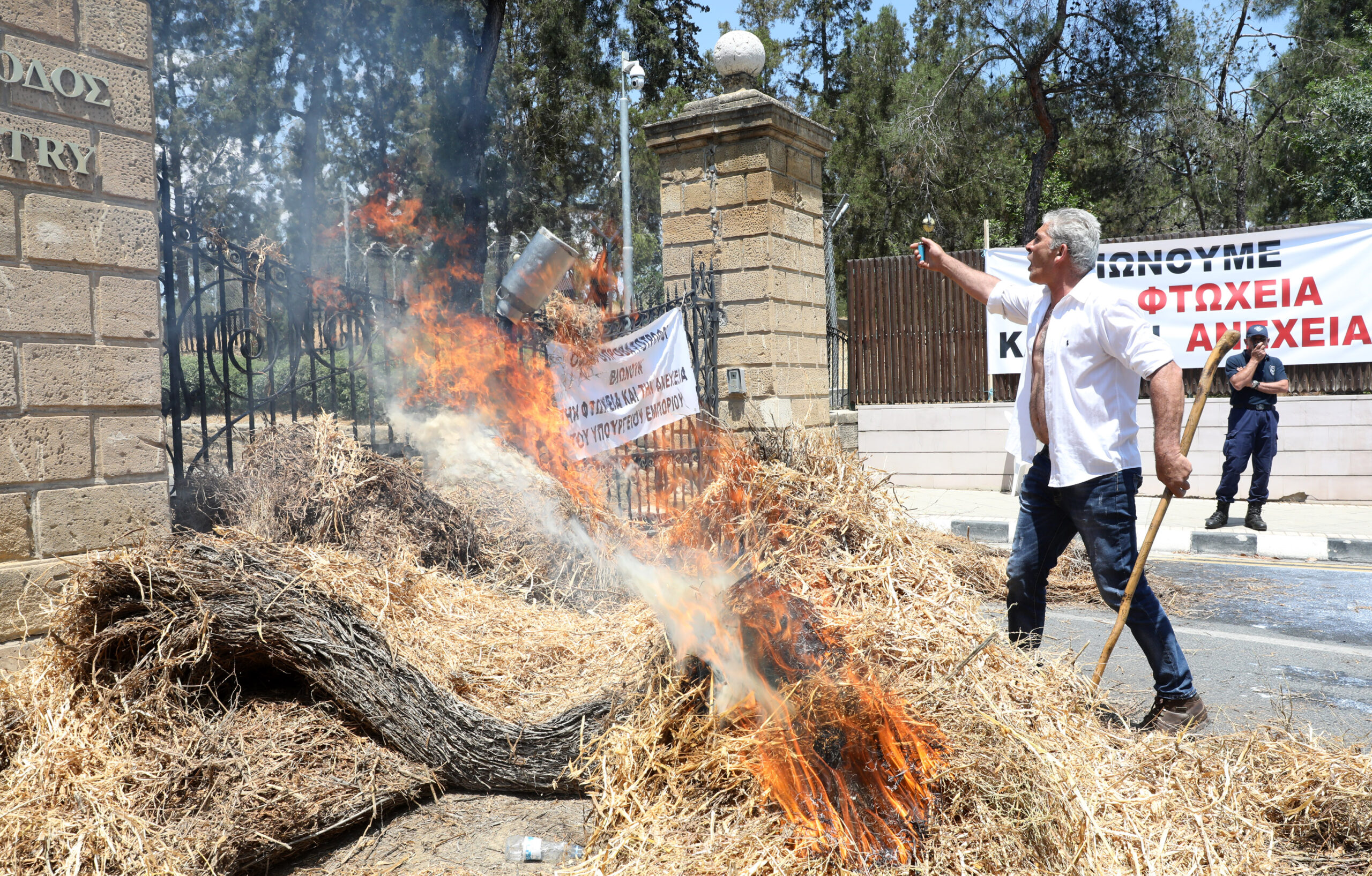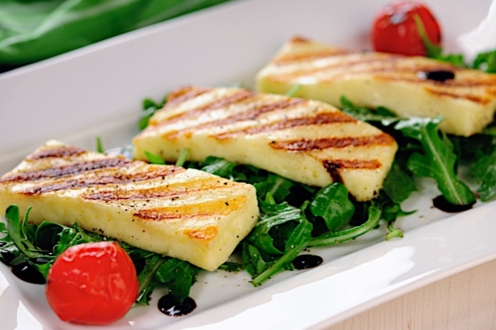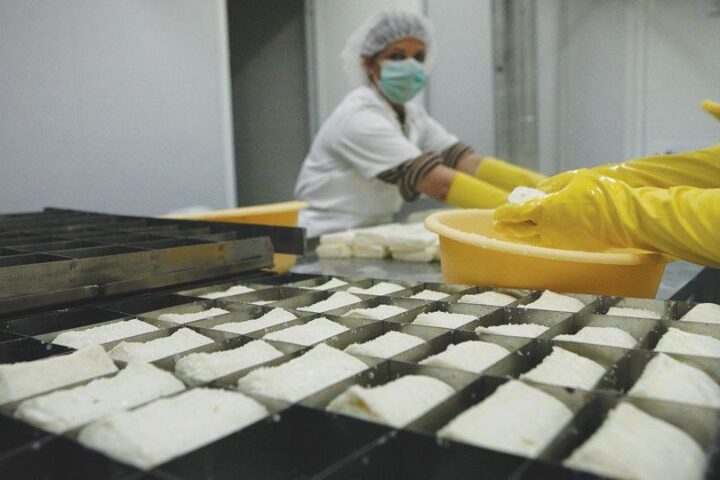A 42-year-old farmer was arrested, and another two are wanted by the police, following a demonstration held by goat and sheep breeders outside the Presidential Palace on Wednesday turned ugly.
Goat and sheep farmers protested over the handling of the Halloumi Product of Origin file (PDO), during which they set fire to hay, while a farmer driving a milk truck threatened to crash into the palace’s gates.
Following the demo, police are examining video material from the protest, and new arrest warrants may be issued.
About 300 farmers, some driving milk tankers, arrived in a convoy at the gated compound, where they spilt milk onto the tarmac and set fire to hay placed outside the main entrance.
Leaving the demo, farmers also cut off Nicosia’s main exit and entry, parking trucks at the Kalispera traffic lights.
At the Presidential Palace, demonstrators were allowed to hand over a memo to President Nicos Anastasiades via the head of the palace’s press office, Andreas Iosif.
Iosif assured farmers the government was on their side.
“During the pandemic, the government has given you more than €25 mln.
“More financial support will be given by the end of the month, as an additional €8 mln will be handed to farmers, five of which will be going to sheep and goat farmers”.
On Thursday, Agriculture Minister Costas Kadis said that sheep and goat farmers’ frustration is “completely justified”.
“They produce milk at the cost of €1.50 and are compensated by the dairies with €1.10”.
He said the price of milk, instead of being set by the producers, the cheesemakers set it.
“Some people want everything for themselves.”
Kadis said the reason why cheesemakers keep the milk price low is to gain leverage for their “unrealistic” demands for specific changes in the halloumi PDO file.
Goat and sheep farmers are protesting the handling of Halloumi’s PDO file, arguing that dairy producers are not complying with regulations on the production of the cheese, leaving them with a glut of milk that they cannot sell or use.
Animal feed
They also say that high prices for animal feed have compounded their bleak situation.
Earlier this week, it emerged that 20% of products checked randomly contained only a small amount of goat or sheep milk.
Cyprus’ PDO file submitted in 2014 said goat’s milk should by 2024 exceed cow’s milk, reaching a minimum of 51%, produced from specific Cypriot breeds of goats and sheep; this did not satisfy cheesemakers who fear the loss of halloumi exports.
Halloumi’s PDO status means the rubbery cheese can only be produced in Cyprus under strict criteria, preventing imitators worldwide from claiming the crown.
The cheese’s PDO status came into effect on 1 October 2021.
In the meantime, authorities consented to producers selling halloumi made with 25% goat or sheep milk to 75% cow milk.
The Agriculture Ministry has instructed the state lab to conduct special tests to identify halloumi products made with milk powder.
Cheesemakers have openly expressed concern over the thorny issue of goat’s milk exceeding cow milk in the ratio by 2024.
They argue that a shortage in goat and sheep milk will make it impossible to produce halloumi in the quantities they are accustomed to.
They fear the obligation to sell halloumi in blocks could lead to plunging sales of halloumi burgers and light halloumi, which will no longer be able to carry the brand name.
Sales and exports of Halloumi generated a whooping €266.5 mln in 2020.
The Agriculture Ministry values the global halloumi cheese market at €420 mln, while studies show it could generate over €625 mln in several years.










